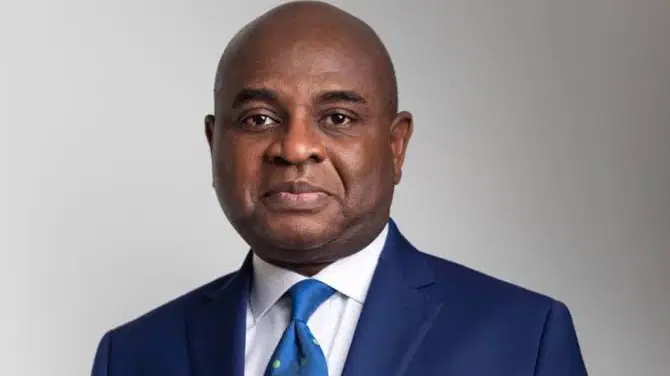Former Deputy Governor of the Central Bank of Nigeria (CBN), Dr. Kingsley Moghalu, has stated that corruption in Nigeria could become a thing of the past if three specific approaches are adopted.
Moghalu, a 2019 presidential candidate for the Young Progressives Party (YPP), made this statement in a Facebook post on Monday.
He noted, “There are three critical ways to combat corruption. The first is to establish a national value system that rejects it. This can be achieved by making ethics a compulsory subject in primary and secondary schools and by promoting anti-corruption messages in the media. Additionally, the conduct of leaders is vital; their tolerance for corrupt practices in government and institutions sets a precedent.”
“Secondly, accountability is crucial. If the consequences of engaging in corruption are severe—such as the death penalty in China or significant prison sentences—corruption rates will decrease.”
“Thirdly, corruption levels tend to be lower in countries where public or civil service salaries are higher on average. However, this is effective only if the first two approaches—value systems and accountability—are firmly in place.”
Moghalu recalled the significance of the third approach during his time as a United Nations (UN) official in the 1990s.
He shared an anecdote about a member of the Nigerian contingent in the UN Police Command during a peacekeeping mission in Cambodia, who asked him in 1992, “After earning this kind of salary and allowances for two years, why would I ask anyone ‘wetin you carry’ when I return home to Nigeria?”
Moghalu remarked, “This conversation often comes to mind when I reflect on corruption in Africa and my own country. The Nigerian police officer on the UN peacekeeping mission earned a base salary of $2,000 per month, plus a daily subsistence allowance totaling $4,000, resulting in a combined monthly income of $6,000. I, as an entry-level UN officer, earned slightly more.”
He continued, “I remember a study conducted about 15 years ago in Ghana, which showed that after the government doubled police salaries, the scale and ambition of bribery actually increased! For instance, we know that parliamentarians in Nigeria and Kenya receive high salaries. Can we say this has lessened their propensity for corruption?”
“These are challenges facing governance and public policy in Africa. While difficult, they are not insurmountable.”
“Corruption is a global issue, deeply rooted in human nature. This is why laws, order, and accountability are essential in civilized societies—they help curb certain innate tendencies for the sake of societal progress and civilization.”
